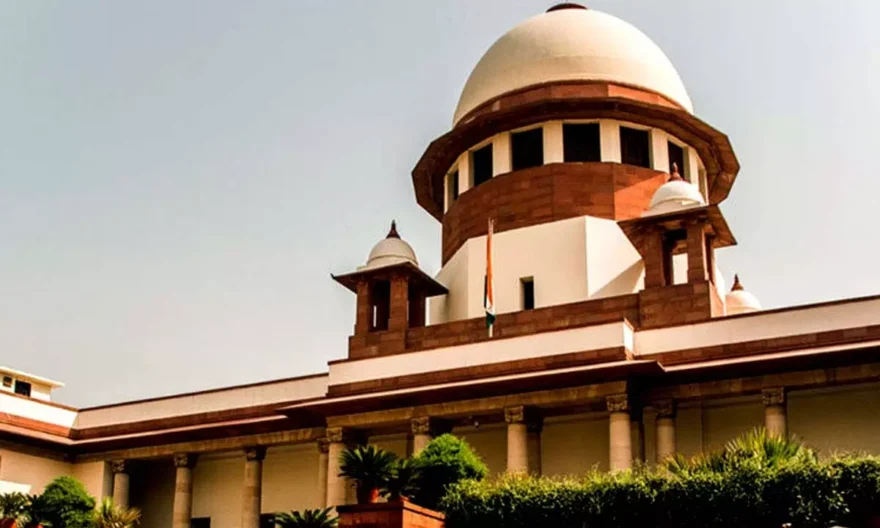
The Supreme Court has recently discharged a man who was convicted of murdering his wife almost 22 years ago, after finding that the courts found him guilty on mere suspicion.
A Division Bench of Justices BR Gavai and Sanjay Karol believed that the courts below have convicted the appellant only because he was last seen with his deceased wife. It added that the circumstances linking the appellant to the crime aren’t proven at all, much less beyond a reasonable doubt.
The judgment said, “Suspicion howsoever grave it may be, remains only a doubtful pigment in the story canvassed by the prosecution for establishing its case beyond any reasonable doubt…Save and except for the above, there is no evidence: ocular, circumstantial, or otherwise, which could establish the guilt of the accused. There is no discovery of any fact linking the accused to the crime sought to be proved, much less, established by the prosecution beyond a reasonable doubt.”
Therefore, the court stated that it would explain how the courts below have seriously erred in passing the order of conviction based on the incorrect and incomplete appreciation of evidence. The Court heard an appeal challenging a 2004 Jharkhand High Court judgment affirming the conviction and life sentence of the accused-appellant by the trial court.
The appellant’s wife was found murdered almost 35 years ago, in August 1988. Her body was found in the well of the village.
Further, the prosecution alleged that the accused had committed the murder of his wife and thereafter dumped her dead body in the well of the village with the intent to cause the disappearance of evidence. It was alleged that the accused later approached the police with unclean hands by fabricating a false story that his wife was ‘missing’.
During the trial, the prosecution examined as far as 10 witnesses. However, the Investigating Officer wasn’t examined. The trial court sentenced the appellant to life imprisonment under Section 302 of the Indian Penal Code 1860 (IPC) and 2 years of rigorous imprisonment in relation to the offense under Section 201 IPC (causing disappearance of evidence of offense).
On appeal, the High Court affirmed the conviction and sentence of the trial court. The High Court relied solely upon the ocular evidence of 3 witnesses. This prompted the appellant to move to the apex court.
Considering that the entire case was based on circumstantial evidence, the Court referred to its decision in Sharad Birdhichand Sarda v. State of Maharashtra (1984), in which it laid down essential conditions to be fulfilled before the conviction of an accused and can take place based on circumstantial evidence.
Therefore, the Court noted that the Investigation Officer wasn’t examined. Moreover, there exists no evidence, ocular or documentary, to show that the appellant caused the disappearance of evidence by giving information to the police.
Further after examining the testimonies of the prosecution witnesses on the basis of which the appellant was convicted, the Court noticed that none of the witnesses have stated anything against the appellant in relation to the crime.
The Court also noted that no case of ill-treatment of the deceased was ever registered against the appellant.
Thus, the bench held that the case of prosecution stands unproven as the circumstances linking the accused to the crime are not proven at all.
“The Courts below presumptively proceeded with the acquired assumption of the guilt of the accused for the reason that he was last seen with the deceased, and lodged a false report, forgetting that as per the version of the father of the deceased, father of the accused had himself apprised him of his missing daughter, at least two days prior to the incident. Doubt and suspicion cannot form the basis of guilt of the accused. The circumstances linking the accused to the crime are not proven at all, much less beyond a reasonable doubt.”
Thus, the Court concluded that the courts below seriously erred in convicting the appellant based on the incorrect and incomplete appreciation of evidence, causing serious prejudice to him, and also resulting in a travesty of justice.
Accordingly, the Court allowed the appeal and set aside the orders of conviction passed by the trial court and the High Court.




